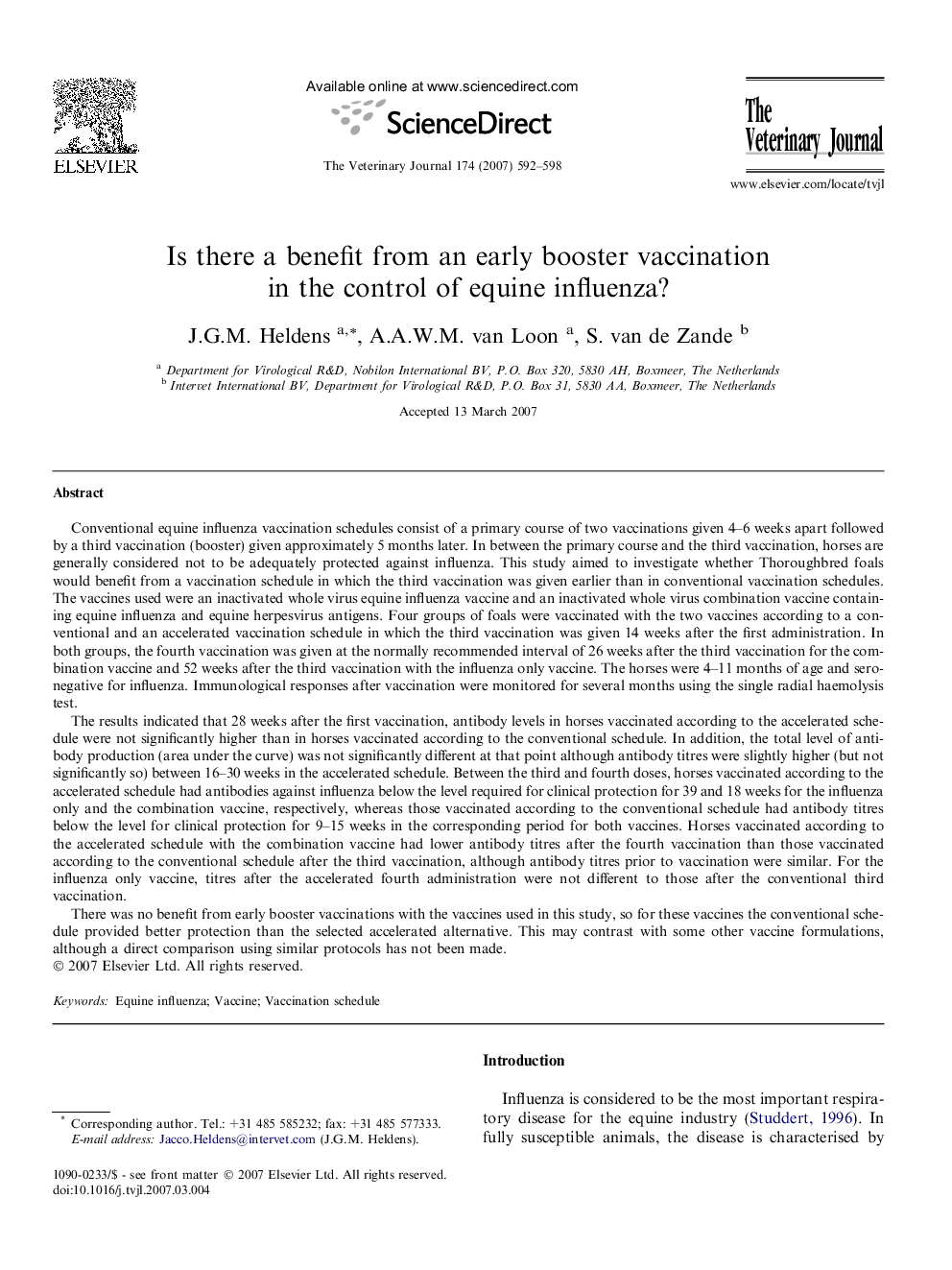| کد مقاله | کد نشریه | سال انتشار | مقاله انگلیسی | نسخه تمام متن |
|---|---|---|---|---|
| 5799534 | 1111842 | 2007 | 7 صفحه PDF | دانلود رایگان |

Conventional equine influenza vaccination schedules consist of a primary course of two vaccinations given 4-6 weeks apart followed by a third vaccination (booster) given approximately 5 months later. In between the primary course and the third vaccination, horses are generally considered not to be adequately protected against influenza. This study aimed to investigate whether Thoroughbred foals would benefit from a vaccination schedule in which the third vaccination was given earlier than in conventional vaccination schedules. The vaccines used were an inactivated whole virus equine influenza vaccine and an inactivated whole virus combination vaccine containing equine influenza and equine herpesvirus antigens. Four groups of foals were vaccinated with the two vaccines according to a conventional and an accelerated vaccination schedule in which the third vaccination was given 14 weeks after the first administration. In both groups, the fourth vaccination was given at the normally recommended interval of 26 weeks after the third vaccination for the combination vaccine and 52 weeks after the third vaccination with the influenza only vaccine. The horses were 4-11 months of age and seronegative for influenza. Immunological responses after vaccination were monitored for several months using the single radial haemolysis test.The results indicated that 28 weeks after the first vaccination, antibody levels in horses vaccinated according to the accelerated schedule were not significantly higher than in horses vaccinated according to the conventional schedule. In addition, the total level of antibody production (area under the curve) was not significantly different at that point although antibody titres were slightly higher (but not significantly so) between 16-30 weeks in the accelerated schedule. Between the third and fourth doses, horses vaccinated according to the accelerated schedule had antibodies against influenza below the level required for clinical protection for 39 and 18 weeks for the influenza only and the combination vaccine, respectively, whereas those vaccinated according to the conventional schedule had antibody titres below the level for clinical protection for 9-15 weeks in the corresponding period for both vaccines. Horses vaccinated according to the accelerated schedule with the combination vaccine had lower antibody titres after the fourth vaccination than those vaccinated according to the conventional schedule after the third vaccination, although antibody titres prior to vaccination were similar. For the influenza only vaccine, titres after the accelerated fourth administration were not different to those after the conventional third vaccination.There was no benefit from early booster vaccinations with the vaccines used in this study, so for these vaccines the conventional schedule provided better protection than the selected accelerated alternative. This may contrast with some other vaccine formulations, although a direct comparison using similar protocols has not been made.
Journal: The Veterinary Journal - Volume 174, Issue 3, November 2007, Pages 592-598